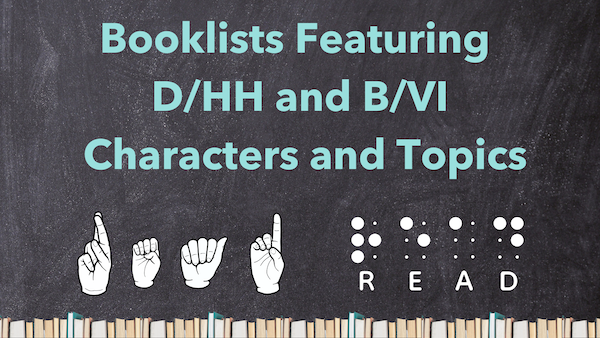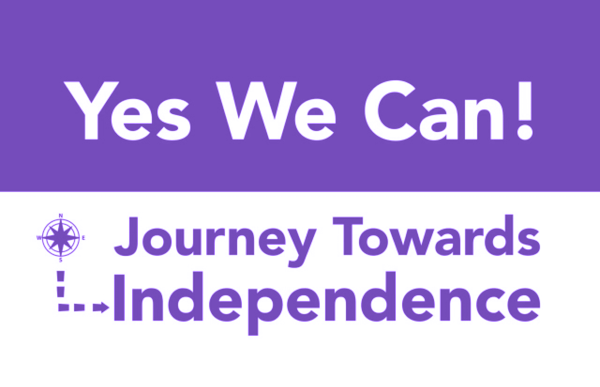Your Child’s Journey: An Ohio Guide for Deaf or Hard of Hearing Support
Identity and Independence
Growing up Deaf or hard of hearing (D/HH) comes with unique joys and challenges. Every child is different—and so is how they see themselves. Some children proudly identify as Deaf, others see themselves as hard of hearing. Some may not have considered these aspects of their identity at all yet. That identity may change over time. It is personal. It is okay if it takes time for your child to figure out what feels right.
As a family, you play a big role in helping your child build a strong sense of who they are and feel confident in their abilities. You also help them take on more responsibility as they grow. Both identity and independence are important parts of your child’s journey toward becoming a capable, self-assured young adult.
Helping Your Child Build a Strong Identity
Your child’s identity includes many parts—culture, language, interests, family background, and more. Being Deaf or hard of hearing is one part of who they are. It is not all of who they are, but it matters.
Here is how you can support your child’s healthy identity:
- Celebrate who they are. Let your child know they are loved and accepted just as they are. Be proud of their Deaf or hard of hearing identity and help them see it as a strength.
- Expose them to role models. Connect with D/HH adults who are successful, creative, and proud of who they are. Seeing others like them can help your child feel more confident.
- Let them ask questions. It is normal for kids to wonder why they are different or why they need hearing devices or interpreters. Be open, honest, and age-appropriate in your answers.
- Use positive language. Talk about being Deaf or hard of hearing in ways that are respectful and empowering. Avoid words like “suffers from” or “afflicted by.” Focus on access and communication, not limitations.
- Connect with community and peers. Attend events, playgroups, or camps for Deaf or hard of hearing youth and families. Community can help children feel like they belong.
- Explore books and media together. Stories are powerful tools for identity. Books and shows that include Deaf or hard of hearing characters can help children see themselves reflected in the world. These tools may also help start important conversations about identity, communication, and inclusion.
Explore our recommended booklist here, and check out select titles from OCALI’s Lending Library.
Encouraging Independence and Responsibility
Children who are deaf/hard of hearing may need additional, more direct support increasing their independence. As your child gets older, provide opportunities to practice making choices and solving problems. These life skills do not develop overnight—they grow slowly, with support from you.
Ways to encourage growing independence:
- Let them speak up. Encourage your child to express their needs—to tell others how they communicate best, or to ask for help when something is not accessible.
- Give them small responsibilities. Depending on their age, they might pack their own backpack, care for their hearing devices, or order for themselves at a restaurant.
- Talk about self-advocacy. Teach your child what their supports are (like captions, interpreters, or digital modulation (DM) systems, and how to ask for them politely but clearly.
- Practice real-world skills. Role-play how to introduce themselves, explain their needs to a new teacher, or manage their schedule.
- Let them try and sometimes fail. Mistakes are part of learning. Be there to guide but avoid jumping in too quickly.
Supporting Medical and Health Independence
Young people who are Deaf or hard of hearing can learn how to manage their own health and communication. Families can help by giving their child the tools, language, and confidence to take charge of their medical needs.
Here are some ways to support this growth:
- Teach them the basics. Help your child learn their diagnosis, any medical conditions they have, and the names of devices or supports they use (like hearing aids, cochlear implants, or interpreters).
- Practice making appointments. When they are ready, let them schedule their own doctor or audiology visits, with support at first if needed.
- Talk about communication access. Help them think about what they need in medical settings—an interpreter, captions, a quiet room, or written information—and how to ask for it.
- Let them speak to providers. Give your child time to answer questions directly when seeing doctors or therapists. If they need help understanding or responding, support them without taking over.
- Support privacy and choice. As they become teens, allow them to make more decisions about their body and care. Respect their comfort level and give them space to build self-trust.
Giving your child space to manage their own health builds confidence and self-respect. It also helps reduce the risk of miscommunication or dependence on others later in life.
For more ideas on building independence, watch Access and Audiology, a video demonstrating how to navigate an audiology doctor appointment.
A Final Note
There is no one “right” way to grow up Deaf or hard of hearing. Some children sign, some use spoken language, some do both. Some wear hearing aids or cochlear implants, others do not. What matters most is that your child feels loved, capable, and proud of who they are. When they believe in themselves, they are more likely to grow into confident adults who know how to speak up, connect with others, and reach their goals.
You are not alone on this journey. There are many people, Deaf or hard of hearing adults, professionals, and community members—ready to walk alongside you and your child.


